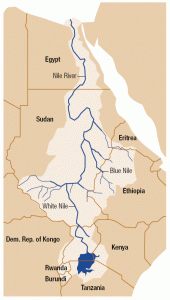For this blog it’s been very difficult trying to find anticolonial revolutionary figures that hands are not stained in blood. When I started my search I typed in anticolonial revolutionary figures in Somalia, and my search led me to Hassan, and an essay by John P. Slight. The opening paragraph of this essay was very devastating, and explains the monstrosities that were committed. I felt that it was best to quote John P. Slight to give the readers a better understanding of the way I felt while reading.
“Since the start of Hassan’s jihad against unbelievers and insufficiently pious Muslims in 1899, the “Cinderella of the Empire” had suffered terribly. Hassan’s jihad caused “universal perdition”, with an estimated 200,000 deaths over twenty years in a territory of three million people. An estimated 30,000 alone died in three years as the result of internecine warfare after the British decided the cost of keeping the “Mad Mullah” in check was too burdensome, and withdrew to the coast in 1909. The withdrawal led Hassan to resume raiding Somali tribes in the protectorate. This, coupled with the British policy of arming these tribes to fend for them selves, contributed to the death toll. Hassan was condemned by the British, but a few of the same observers also grudgingly admired his determination and sustained resistance to imperial power.”
This information led me to seek out information on individuals in Somalia who had a positive influence on the country without it resulting in blood shed. Most of Somalia is still beginning to fix itself after their civil war, and they are currently divided, Somaliland to the north and Somalia to the south. Throughout my search I found many civil rights activists that have influenced Somalia in a positive way. However one of these individuals stood out among the rest was Asha Haji Elmi, a politician and peace activist. There are five major clans in Somalia the Rahanweyn, Darod, Dir, Hawiye and Isaaq. However in 2000 Ashe formed the Sixth clan, “the pan-Somali women’s movement”.
This individual strength intrigued me the more I read about her. During my reading I discovered this statement, “I was divided in two. My birth clan rejected me, because my husband was from a clan they were fighting. My husband’s clan considered me a spy and a stranger. Where do I belong? I realized the only identity no one could take away from me was being a woman. My only clan is womanhood.” Asha Haji Elmi and her husband tossed aside the cultural norm and started a powerful influential force. During the first Somali Peace and Reconciliation conference in 2002, the women were denied a seat at the table because men from the five clans were only recognized as officials. However a small cross-clan group of women led by Asha Haji Elmi demanded a place in the negotiations as representatives of Somalia’s sixth clan. The sixth clan was recognized for the first time in Somalia history showing women had representation in government. There are currently 22 women in Parliament.

















